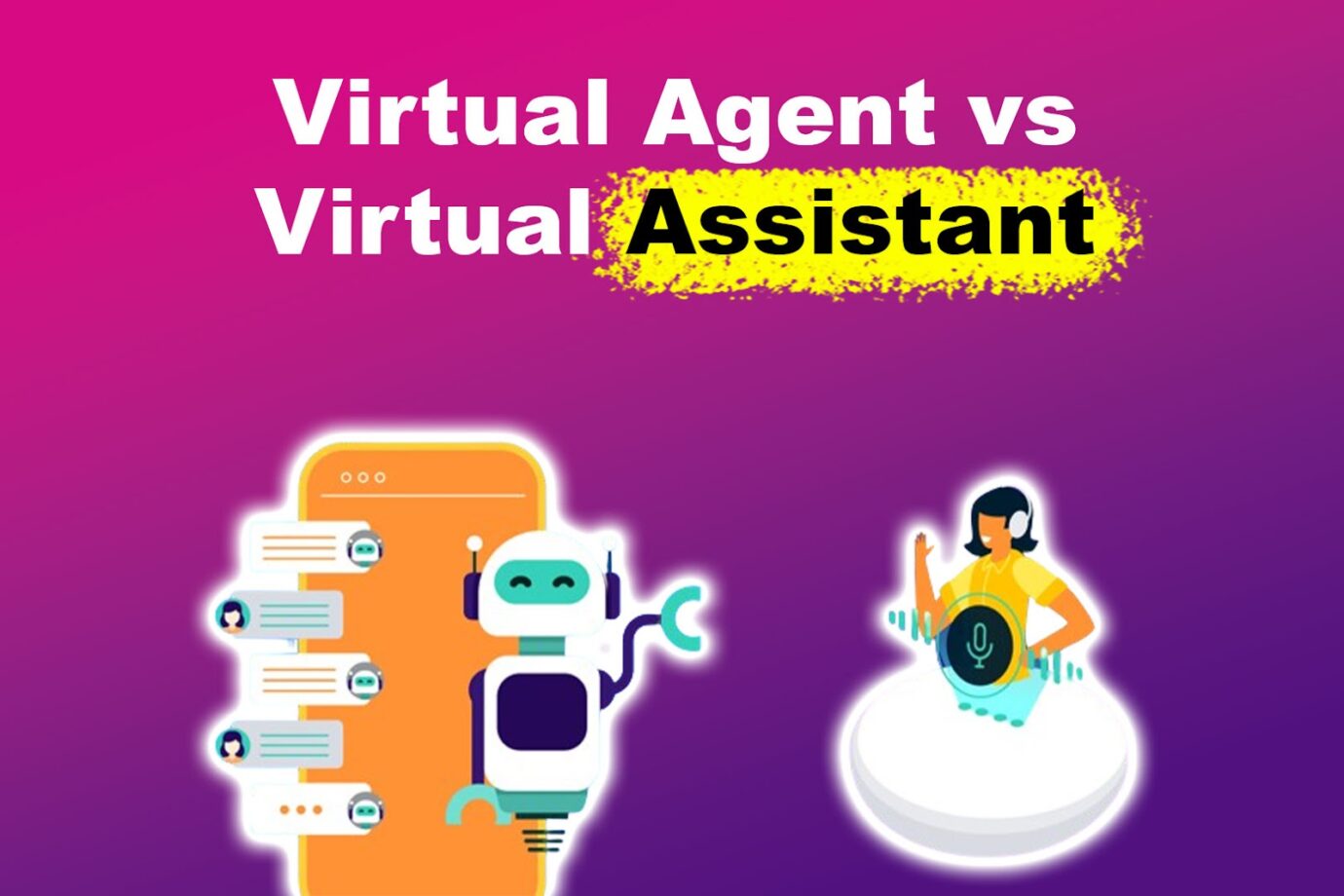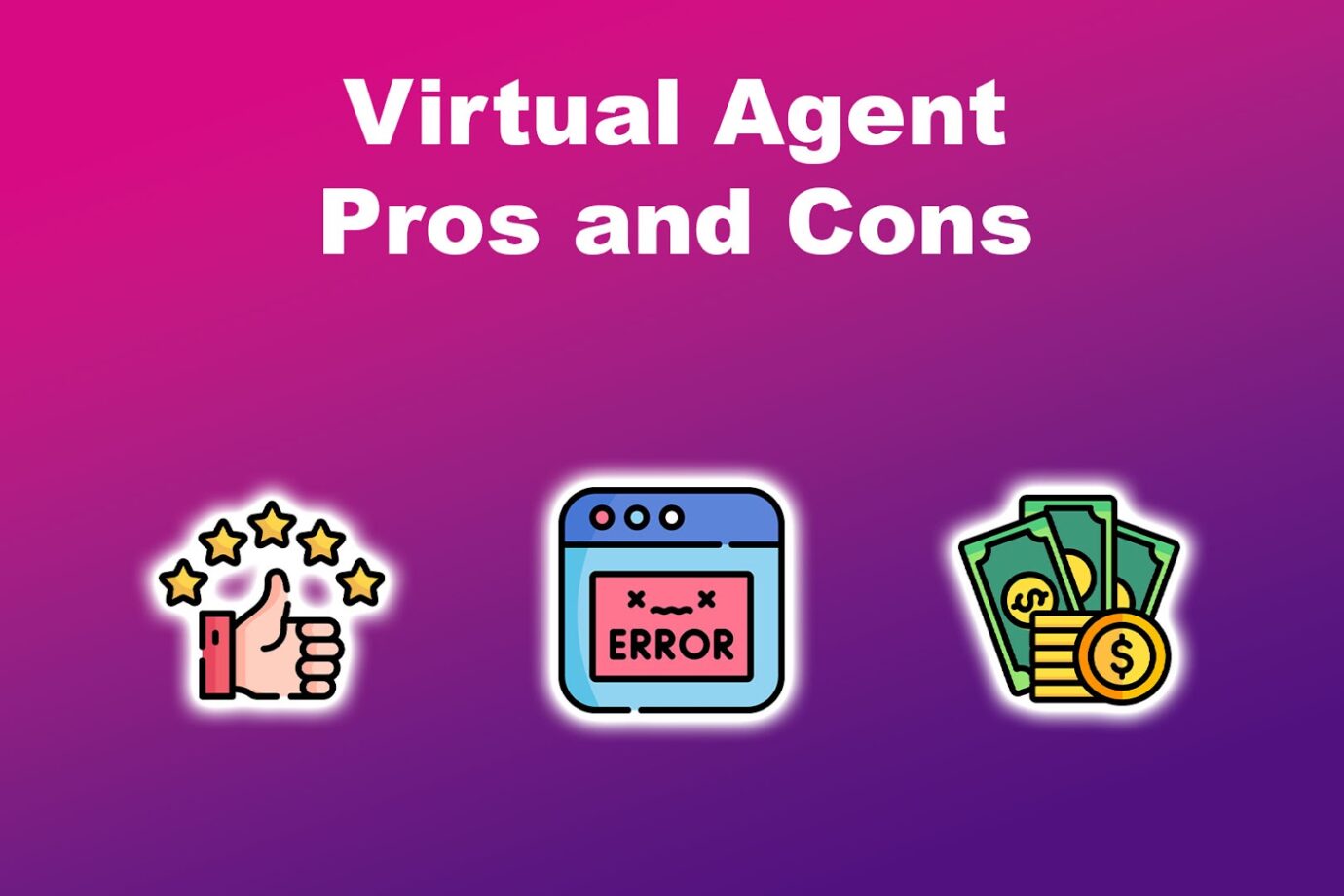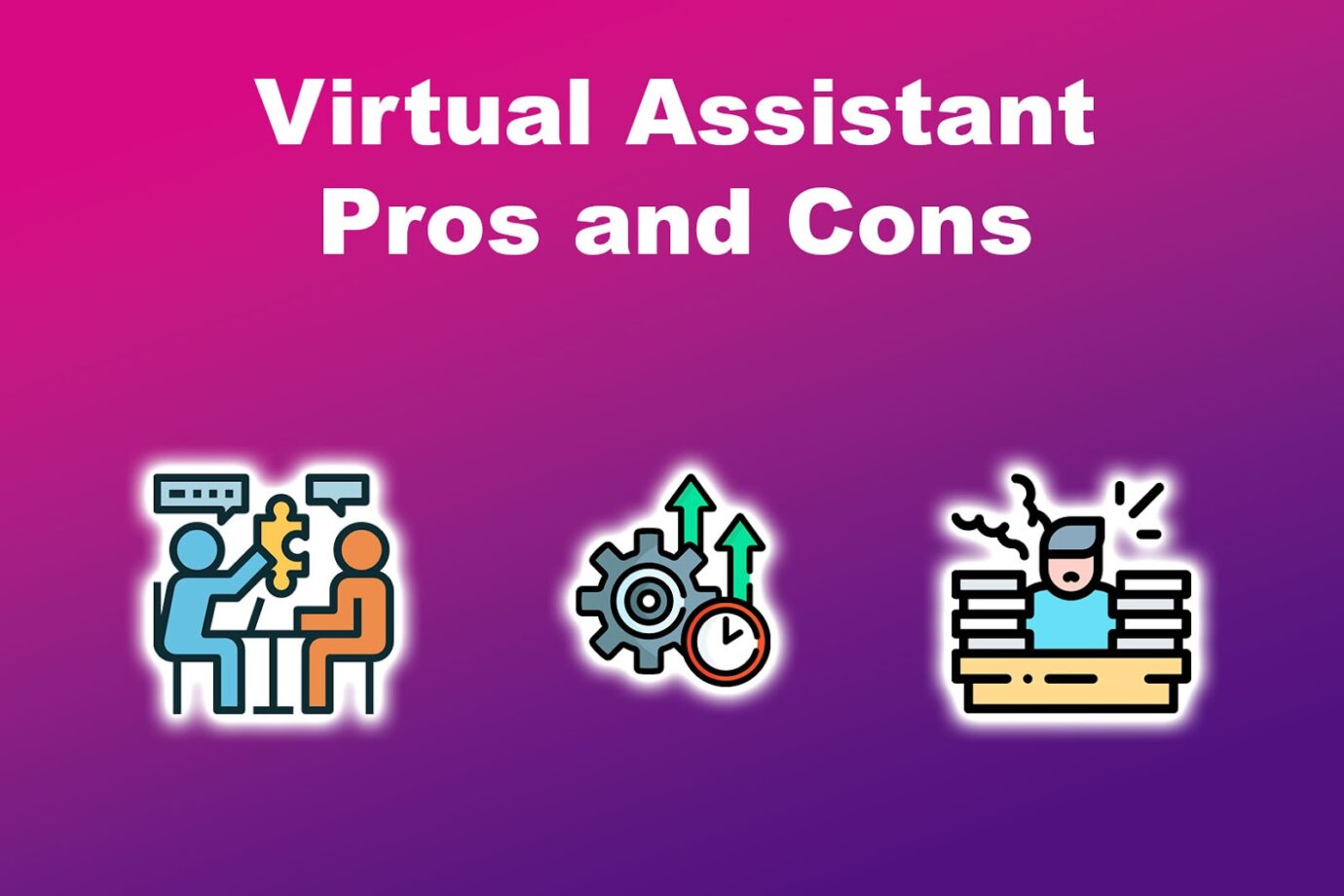While they sound similar, virtual agents and virtual assistants have countless differences. Virtual agents typically use predefined rules and artificial intelligence to handle tasks. Meanwhile, virtual assistants utilize digital tools to manage tasks, including administrative and technical responsibilities.
However, you can use these two to enhance business efficiency and empathy. Let’s dive into the pros and cons of virtual agents and virtual assistants.

What Is a Virtual Agent?
A virtual agent is a software tool that simulates human actions via automation. It analyzes texts and speech accurately using technologies like natural language processing (NLP), artificial intelligence, and robotic process automation (RPA).
A virtual agent helps with customer service by handling queries, completing tasks, providing information, or assisting users in solving problems. These agents can also be voice-activated assistants like Siri for Apple and Alexa for Amazon.
Check out the advantages of using AI in the workplace here.
What Is a Virtual Assistant?
A virtual assistant is a professional who offers a range of support services to clients, including individuals, businesses, and organizations. A virtual assistant works remotely but can still access essential office documents like calendars and files.
These assistants can make phone calls, organize emails, do data entry, or provide IT support. Other responsibilities may include website management, data analysis, graphic design, and video editing. You can find virtual assistants on various platforms, including Upwork and Fiverr.
Virtual Agent & Virtual Assistant Pros and Cons
Virtual agents and virtual assistants work together. Virtual agents can make it easier for virtual assistants to focus on work that requires a “human touch.”
So, the best choice would be any BPO company that can offer a solution that combines tech (virtual agents) and human intelligence (virtual assistants).
These are the pros and cons of virtual agents and virtual assistants:
Virtual Agent Pros and Cons

Pros
- Minimizes Errors.
Virtual agents are programmed with specific, consistent responses, reducing human error risk. - Efficient.
Virtual agents instantly respond to customer queries and can handle multiple inquiries at the same time. This efficiency reduces customer waiting times, maintaining a level of service. - Cheaper.
A virtual agent automates repetitive tasks, reducing the need for a larger customer service team. This saves on salaries and related expenses, decreasing operational costs. - Available Round the Clock.
Virtual agents are available 24/7 to assist customers. This ensures continuous customer support, which increases satisfaction and loyalty. - Improves Customer Satisfaction.
With fast response times, minimized errors, and round-the-clock availability, virtual agents enhance customer satisfaction by promptly addressing their queries.
Learn more about the pros of virtual agents from Forbes.com
Cons
- Lack of Human Touch.
While efficient, virtual agents lack the understanding and empathy human agents provide. This makes them less useful when emotional sensitivity is required, like when a customer is upset or needs reassurance. - Overdependence on Technology.
The functionality of virtual agents depends entirely on technology. Server downtimes or other glitches can disrupt service, reducing customer satisfaction. - Miscommunications.
Virtual agents have limited understanding. They work based on pre-set responses, making solving complex issues difficult. This can result in miscommunication and misinformation, leading to customer frustration. - Privacy Concerns.
Virtual agents rely on collected and stored user data. If the system is hacked, sensitive information, including conversation histories, can be exposed, damaging customer trust.
Virtual Assistant Pros and Cons

Pros
- Saves Operational Costs.
Virtual assistants work freelance, making them cheaper than hiring full-time employees. They also work remotely, helping businesses save on equipment, rent, and other expenses. - Offer Specialized Skills.
VAs are skilled in various fields, such as bookkeeping, customer service, and digital marketing. This enables businesses to tap into quality skills without investing heavily in training. - Improves Productivity.
With virtual assistants handling repetitive tasks, businesses can concentrate on core activities, leading to increased productivity. - Flexible.
Virtual assistants can adjust schedules to accommodate different time zones and meet project deadlines. As a result, businesses can operate around the clock, boosting productivity. - Reduces Workload.
Virtual assistants offload various tasks, from managing emails to data entry, decreasing the workload. This can help business owners avoid burnout and focus on strategic responsibilities.
Cons
- Variable Availability.
Many virtual assistants work freelance and might have various clients or other commitments. This can affect their availability, resulting in scheduling conflicts. - Limited Oversight.
Monitoring virtual assistants can be more challenging compared to in-house employees. This can affect their quality of work and adherence to deadlines. - Communication Challenges.
Lack of in-person communication makes effective interaction challenging. Language barriers and cultural discrepancies may also lead to misunderstandings. - Lack of Trust.
Trusting a virtual assistant with sensitive information, especially in the early stages, can be challenging. This may lead to delayed delegation, impacting workflow and reducing productivity.
Virtual Agents & Assistants Offer Different Benefits
While virtual agents and virtual assistants offer different benefits, you can use them both for your company. Virtual agents can simplify processes for your virtual assistants, allowing them to become more productive.
Meanwhile, virtual assistants can use virtual agents to improve their skills further and contribute more to your business.